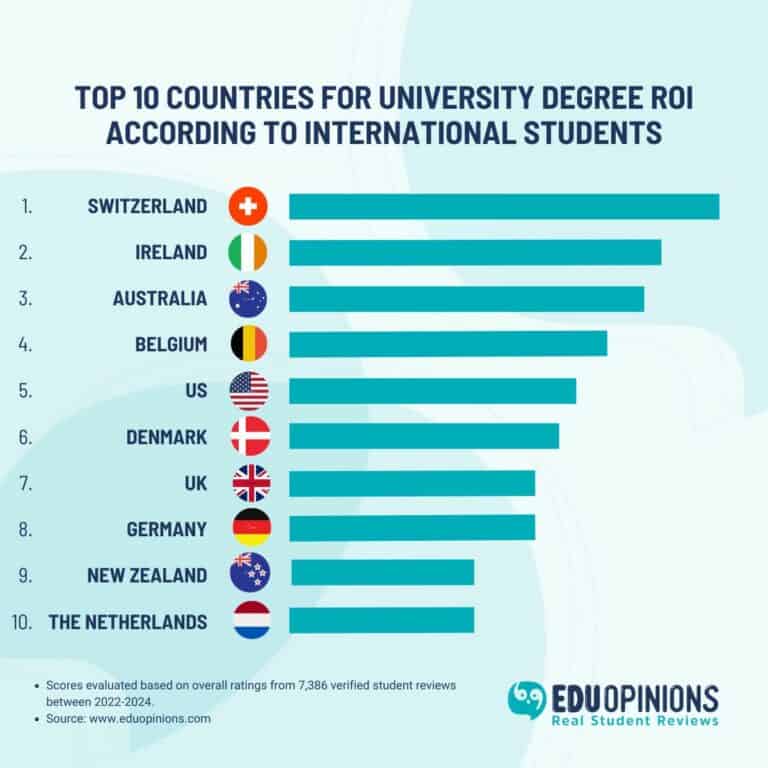An MBA is a hugely valuable degree, especially when it comes to earnings potential. 72% of graduate management education grads say the degree helped them increase their salary, while 74% said it increased the number of job opportunities available to them. An MBA may give you opportunities to earn more, but how can you actually increase your salary after an MBA?
In general, MBA graduates can expect to see a 35%-45% increase in their salary compared to before their degree. However, there are ways that you can increase this even more. From targeting lucrative industries to expanding your network, we explore five ways you can earn more after your MBA degree.
How to Increase Salary After An MBA
1. Learn How to Negotiate

So, you’ve graduated from your MBA and received a job offer – congratulations! However, you might find that your proposed salary and benefits are less than what you were expecting. In that case, now’s the time to put your negotiation skills to the test.
Negotiating a salary isn’t yet common practice. In fact, 58% of workers claim to have never done it. However, especially after an MBA, you want your salary to reflect the time, money, and effort you’ve put into your degree. Often, this means proposing a new sum that better aligns with your education and skills. While workers are hesitant about negotiating, 70% of managers say they expect candidates to do so – so there’s no reason to be afraid.
If you do find yourself in this situation, there are ways to increase your chances of negotiation success. Start by evaluating your own value, including any niche skills you have or specific areas of expertise. You might also factor in your geographical location – some areas will have a higher cost of living than others.
Additionally, do some research into standard industry salaries for your education level, including at competitor companies.
Finally, approach the negotiation with confidence. Take pride in your achievements and the value you’ll bring to the company. And always ask for the higher number in your acceptable salary range – this way if your manager proposes less, you’ll still achieve the salary that you want.
2. Target Specific Industries
Some industries naturally offer higher salaries than others. As a result, this can be one of the easiest ways to immediately increase your salary after an MBA.
Consultancy is one of the most popular industries for MBA grads, and it’s also among the highest-paid MBA careers. Though your starting salary as a junior consultant can depend on the size of the company, you can expect to receive between $130,000 to $160,000 per year in the US. In Europe, you can expect to earn between €60,000 and €80,000 to start with, though your salary will increase year by year.
Finance is another area with higher than average salaries. As a financial manager or investment banker, you can be almost guaranteed a salary above $100,000 if you’re in the US. In the UK, first-year financial analysts can expect a salary of around £60,000, rising to around £90,000 after just three years in the job.
You can also expect to see high salaries in more innovative sectors like technology, data analytics, and the sciences.
3. Learn What Recruiters Want

Knowing exactly what recruiters are looking for in their candidates can go a long way in improving your likelihood of a high salary.
According to MBA recruiters around the globe, these are the most in-demand skills:
- The ability to work with different people
- The ability to expand networks
- Time management
- An understanding of digital transformation
- The ability to solve complex problems
Additionally, recruiters were asked about the most difficult skills to recruit for. This is interesting, as it tells you which skills you should prioritise in a job interview to increase your chances of success. These skills were:
- Social media
- The ability to train others
- Financial forecasting
- Big data analytics
- Brand storytelling
4. Stay At Your Pre-MBA Company
Sometimes, you don’t even have to enter the job market to increase your salary after an MBA. The answer could be as simple as staying at your current job.
For some MBAs, this is the only possible route to an MBA. Their employer may pay for their degree, with the outcome being that they gain a more skilled employee afterwards.
Graduates who do stay at their current workplace after graduating often see a salary increase of around 39%. This matches the average salary increase for all MBAs, proving that you won’t necessarily take a cut in pay by returning to your old employer.
5. Strengthen Your network

Finally, one of the best ways of finding the highest post-MBA salaries could be simply to expand your network.
As an MBA, you’ll have met people from all around the world, who work in a wide range of industries. This not only includes the people you studied with, but also your wider network at business school including professors and alumni. By harnessing the power of these connections, you could discover new job opportunities that perhaps you wouldn’t have thought about before.
The old adage ‘it’s not what you know, it’s who you know’ also applies to MBA grads. In this case, getting a personal recommendation from a course friend or professor can also increase your chances of increasing your salary from the average.
To strengthen your network, make sure to take advantage of your business school’s alumni network. Your school may organise opportunities to meet previous graduates at events even after you’ve graduated, increasing your chances of finding a lucrative, high-paying job opportunity after your degree.
Conclusion
An MBA is one of the best degrees for increasing your salary. However, as we’ve shown, you can also increase the likelihood of achieving big gains after your MBA by following these five tips.
If you’re still considering whether an MBA is the right degree for you, read our recent article to find out the 5 questions you should be asking yourself before you apply.
Recent Posts

The moment you transfer the first tuition fee payment to your university, you'll be thinking of how you can recoup that investment. This is ...

For professionals with a few years' experience already, an MBA can be a great way of boosting your career prospects. From changing jobs or industries ...

Studying abroad for a semester or a full year can be an incredibly enriching experience. You'll get to experience a new culture, meet new people, and ...







